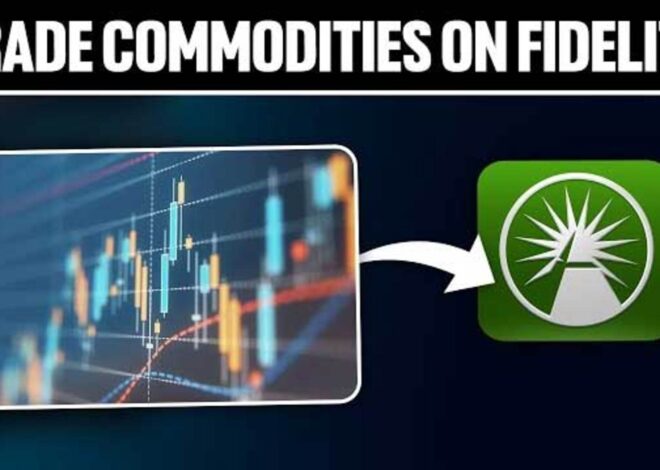
How to Choose a Forex Broker
Choosing the right Forex broker is a critical step for anyone looking to navigate the world of currency trading. With the vast number of brokers available, it can be overwhelming to decide which one suits your trading style and needs. This article will guide you through the essential factors to consider when selecting a Forex broker, ensuring that you make an informed decision.
Understanding the Forex Market: A Brief Overview
Before diving into the specifics of choosing a broker, it’s important to have a foundational understanding of the Forex market. The Forex market is the largest financial market globally, where currencies are traded 24 hours a day. Traders aim to profit from the fluctuations in currency prices, making it essential to have a reliable broker to facilitate these transactions.
Key characteristics of the Forex market include:
- High Liquidity: The Forex market has immense liquidity, allowing traders to enter and exit positions easily.
- Leverage: Most brokers offer leverage, enabling traders to control larger positions with a smaller amount of capital.
- Volatility: Currency pairs can experience significant price movements, providing both opportunities and risks.
Key Regulations to Consider When Choosing a Broker
When selecting a Forex broker, regulatory compliance is paramount. Regulated brokers are required to adhere to strict guidelines, which provide a level of security for traders. Here are some key regulatory bodies to consider:
- Financial Conduct Authority (FCA) in the UK
- Commodity Futures Trading Commission (CFTC) in the USA
- Australian Securities and Investments Commission (ASIC) in Australia
Before settling on a broker, verify their regulatory status. You can typically find this information on their official website or through the regulatory body’s database.

Evaluating Trading Platforms: Features and Functionality
The trading platform is your primary interface for executing trades. Therefore, it is vital to choose a broker that offers a robust and user-friendly platform. Consider the following features:
- Compatibility: Ensure the platform is available on multiple devices, including desktops, tablets, and smartphones.
- Charting Tools: Look for advanced charting tools to analyze market trends effectively.
- Order Types: Check if the platform supports various order types, such as limit, stop-loss, and market orders.
Comparative Table of Popular Trading Platforms
| Broker | Platform | Key Features |
|---|---|---|
| Broker A | MetaTrader 4 | Advanced charting, automated trading options |
| Broker B | cTrader | User-friendly interface, extensive order types |
| Broker C | Proprietary Platform | Custom indicators, social trading features |
Assessing Broker Fees: Spreads, Commissions, and More
Understanding the fee structure is crucial in determining the cost of your trades. Forex brokers may charge fees in different ways, including:
- Spreads: The difference between the bid and ask price. Look for tight spreads, which indicate lower costs.
- Commissions: Some brokers charge a commission per trade. Evaluate whether this is worth it based on your trading frequency.
- Account Fees: Be aware of additional fees, such as withdrawal fees or inactivity fees.
When comparing brokers, always consider the total cost of trading, not just the spreads or commissions alone.
Researching Customer Support: Availability and Quality
Effective customer support can make a significant difference in your trading experience. When something goes wrong or you have questions, you want to ensure help is readily available. Here are some aspects to consider:
- Availability: Check if the broker offers 24/5 or 24/7 support. This is particularly important for Forex traders who may need assistance outside of regular business hours.
- Channels of Communication: Look for brokers that provide multiple channels of communication, including live chat, email, and phone support.
- Response Time: Test the responsiveness of customer support by reaching out with questions before opening an account.
Reading Reviews: Learning from Other Traders’ Experiences
One of the best ways to gauge the reliability of a Forex broker is to read reviews from other traders. Look for reviews on financial forums, social media platforms, and review websites.
When reading reviews, pay attention to:
- Consistent Issues: If multiple users report the same problem, it is worth considering.
- Broker’s Response: A broker that actively engages with their customers and addresses concerns is generally more trustworthy.
- Traders’ Success Stories: Positive experiences can give you confidence in a broker’s reliability.
Conclusion
Choosing the right Forex broker involves careful consideration of various factors, including regulations, trading platforms, fees, customer support, and user reviews. By conducting thorough research and using the guidelines provided in this article, traders can find a broker that meets their needs and enhances their trading experience. Remember that the right broker can make a significant difference in your trading journey, allowing you to focus on what truly matters: achieving your trading goals.



‘High liquidity’ is something I need to keep in mind when trading. Great article!
This article explains how to choose a Forex broker very well. I didn’t know about the importance of regulations before.
Understanding spreads and commissions is important. I’ll look for brokers with lower fees.
The section on trading platforms was helpful. I need to check if my broker has good charting tools.
I appreciate the tips on customer support. It’s crucial to have help when needed.
‘Leverage’ sounds risky but also beneficial if used wisely. Thanks for the info!
‘Reading reviews’ section is a good idea! I’ll definitely check out other traders’ experiences.
This gives a clear overview of the Forex market. I feel more confident about choosing a broker now.
. It’s interesting to learn about different regulatory bodies like FCA and CFTC!
‘Compatibility’ in trading platforms is key for me. I’ll look for one that works on all devices.